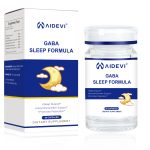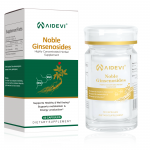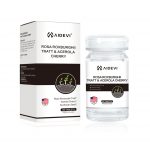Four Ear Conditions You Shouldn’t Ignore: Give Your Ears Some Extra Care!
Ears play a vital role in the human body, serving as the instruments for recognizing and differentiating sounds, capturing external signals, and enabling communication between individuals by converting mechanical waves into understandable sounds and neural signals. These signals are then transmitted to the brain, which processes them into instructions, such as language, music, and sentences, facilitating interaction and communication between people.
In reality, disorders affecting the outer ear are relatively uncommon. However, that doesn't imply that no one experiences discomfort in the ears, such as itching. It's common to observe people casually scratching their ears, often without yielding any noticeable results.
So, what causes localized itching in the ears, and what's the underlying reason? Let's delve into this topic in this article.
Causes of Persistent Ear Itching
Let's examine the factors that can lead to continuous ear itching.
Firstly, external otitis. External otitis results from water entering the ear, causing the local skin inside the ear to become moist. Moist skin reduces the ear canal's resistance. If you continue to dig your ears under these conditions, it can inflict severe damage to the ear canal, making it more vulnerable to pathogens, ultimately leading to inflammation in the ear canal. Symptoms of external otitis include a mild earache, a sensation of fullness in the ear, and, occasionally, tinnitus. Opening your mouth widely when your ear aches can provide some relief.
Secondly, excessive earwax secretion can result in itching. Earwax is considered a normal secretion in clinical medicine and typically doesn't require special attention. However, when it accumulates excessively, it can irritate the nervous system and impact your hearing. If you allow too much water into your ears during bathing, further diluting the earwax, it can intensify ear pain and itching.
Thirdly, senior individuals with diabetes. If you are a senior dealing with diabetes, you might experience abnormal fat and blood sugar metabolism. Sometimes, diabetes can lead to other health issues and can cause generalized itching. Irregular eating habits, excessive consumption of allergenic foods, such as sweets and spicy dishes, along with staying up late and having an irregular sleep schedule, can all contribute to ear itching.
Fourthly, the habit of frequently cleaning one's ears. In normal circumstances, the skin inside the ear is relatively free from dermatological conditions. However, some individuals have the habit of frequently using earpicks and cotton swabs to clean their ears. Frequent ear cleaning can not only inflict significant damage on the ear's subcutaneous tissue but can also cause the ear canal's skin to become excessively dry, leading to scaling and peeling, ultimately resulting in abnormal ear itching.
Ear Itching is a Symptom of These Conditions
Some individuals might wonder whether ear itching is indicative of an underlying health issue. Any specific change in an organ can serve as a warning sign, and persistent ear itching can be a symptom of several conditions. Let's explore these conditions.
Firstly, if there is an overpopulation of ear mites inside your ears. When skin isn't cleaned promptly, and excessive oil accumulates, mites can multiply on the skin, leading to facial itching. Many people use facial cleansers or cleaning agents to minimize mite occurrence on their skin. However, mites can also thrive inside the ears. When mites multiply significantly within the ears, it can lead to ear itching. In such cases, it is crucial for everyone to maintain good personal hygiene, avoid sleeping on dirty pillows, and maintain a clean and tidy living environment for hygiene's sake.
Secondly, you might develop a fungal infection. The inner parts of the ear are filled with various blood vessels and nerves, featuring a complex structure. This intricate structure makes the ear gland tissues susceptible to external infections. Under typical circumstances, ear gland tissues offer protective effects for the eardrum. However, many people have a habit of using their fingers to clean their ears, which can lead to fungal infections in the ear gland tissues. It is advisable not to use your fingers to clean your ears and to avoid fungal infections in the ear gland tissues, resulting in the secretion of yellow substances.
Once you notice ear itching, it is essential to take it seriously. Thirdly, the ears can get infected with eczema. Many individuals remove earwax while cleaning their ears, which may contain purulent secretions. These secretions are caused by fungal infections and represent a form of disease. Some people mistakenly believe that eczema in the ear results from a large amount of water entering the ear. In fact, fungal infections that lead to eczema inside the ears also create a moist environment for the ear gland tissues, causing itching. If you frequently experience ear itching, it's important to consider whether eczema is the cause of your discomfort.
Fourthly, the ears can become infected with bacteria. People who frequently clean their ears with earpicks or their fingers often fail to maintain clean and hygienic hands. Cleaning the ears with fingers can introduce bacteria into the ear canal, resulting in itching and bacterial infections. In severe cases, this can even affect the hearing system.

Avoid Self-Inflicted Ear Damage
Concerning ear itching, many people may believe that it is proper to clean their ears and that excess earwax must be removed. However, many times, improper ear cleaning methods and frequent cleaning can cause significant damage to the ears. In some cases, individuals may develop a psychological dependency on this practice, leading to harm to their hearing and a gradual decline in hearing sensitivity.
Our ears are active and sensitive when we eat, swallow food, walk, and speak. When there is a buildup of material in the ears, our hearing is affected as the eardrum is compressed downward, which may even lead to ear swelling and tinnitus. If you feel that there is a substantial amount of debris in your ears, it is recommended not to clean them yourself and instead seek professional assistance from a specialist who can clean your ears safely. If the debris remains in your ears for an extended period, it can be removed using physiological saline or a suction device.
It is important to note that frequent ear cleaning can lead to various diseases. The ear is a delicate organ, and the skin inside the ear is very thin. Therefore, if you have the habit of cleaning your ears, it is essential to ensure your hands are clean and practice good hygiene before cleaning your ears to prevent skin diseases in your ear canal.
If you experience unusual pain while cleaning your ears, it is crucial to consider whether you have touched the eardrum. Prolonged exposure to high-noise environments can damage the eardrum. Once the eardrum is damaged, it is challenging to restore it to its original state and severe damage to the eardrum can indirectly affect your hearing.
You might wonder whether frequent ear cleaning and the introduction of infectious agents can lead to inflammation. Some people may not be concerned about this and may not be discouraged by the temptation to clean their ears. However, frequent irritation of the external ear canal can affect the skin and may lead to the development of ear canal papilloma. Ear canal papilloma is a benign condition, but constant stimulation of the external ear canal and eardrum can induce the development of ear canal papilloma carcinoma. Therefore, if your tumor is benign and in its early stages, avoid irritating your external ear canal and eardrum. It is crucial to seek professional assistance to clean your ears and prevent potential cancer from developing.
Protect Your Ears and Prevent Ear Discomfort
In our daily lives, how can we safeguard our ears? Here are a few essential practices to follow:
Maintain good personal hygiene to prevent the excessive growth of ear mites and fungal infections in the ears.
Avoid using your fingers for ear cleaning and opt for safer methods to clean your ears.
Seek professional assistance if you believe there is a substantial accumulation of ear debris, as they can safely clean your ears using appropriate tools.
Be cautious when exposed to high-noise environments, as prolonged exposure can damage the eardrum.
In cases of ear discomfort, pain, or persistent itching, consult a medical specialist to diagnose and treat any underlying ear issues.
By following these practices, you can help protect your ears, maintain your hearing, and prevent ear discomfort and pain."
I hope this translation reads more naturally for you! If you have any further questions or need additional assistance, please feel free to ask.






























